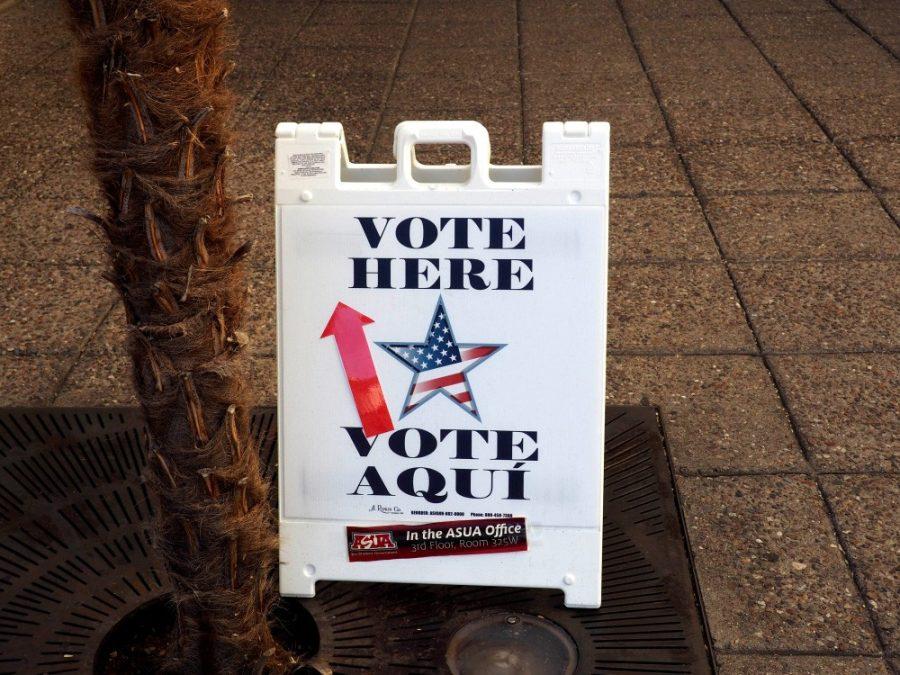This November, Arizona voters will have the opportunity to vote on three amendments to the Arizona constitution and two propositions. To make it on the ballots, these initiatives gathered hundreds of thousands of signatures by Arizona voters.
An initiative to increase education funding by increasing taxes on wealthy Arizonans received enough support to be placed on the ballot but was removed by the Arizona Supreme Court because of invalid signatures.
Arizona voters can learn about the initiatives of this November’s ballot below or online.
Prop 125:
Prop 125 would amend the Arizona constitution to allow the state legislature to calculate new correction officer retirement pension increases based on the cost of living instead of the current mandated increase. Proponents of the bipartisan amendment argue the new pension adjustment method would save taxpayers millions and shore up the Corrections Officer Retirement Plan fund. Opponents worry the change undercuts correction officers and will increase turnover and officer training costs for taxpayers.
Prop 126:
Prop 126 would amend the Arizona constitution to prohibit the state or cities from increasing or creating new sales taxes or service-based fees. Proponents argue the amendment protects local businesses, families and seniors from new taxes on services like healthcare or childcare. Opponents argue the change ignores current safeguards to prevent a rush of new taxes and permanently restricts ever-changing revenue sources, hurting future funding for education and other services.
Prop 127:
Prop 127 would amend the Arizona constitution to require utility companies regulated by the state to increase the amount of renewable energy they provide consumers beginning in 2020. Proponents argue this amendment would result in cleaner air and water, new jobs, and lower electricity rates in the long term. Opponents argue the amendment leaves utilities with no flexibility and would result in increased electricity rates, thereby hurting the economy while producing only marginal environmental benefits.
RELATED: How and where to vote
Prop 305:
Prop 305 would expand eligibility for Arizona’s tuition voucher-like program, the Empowerment Scholarship Account, to include all public school students and increase its funding and oversight. Proponents argue the expansion helps provide more parents more choices for their children’s education, increasing quality and outcome. Opponents argue the expansion does not expand school choice but transfers funding for public schools to private schools, thereby hurting public education and reducing accountability for spending and curriculum standards.
Prop 306:
Prop 306 would require Arizona’s Citizen Clean Election Commission to receive regulatory approval from a governor-appointed council and public comment before voting on new rules. It would also prevent publicly funded campaigns from paying political parties or private election organizations. Proponents argue the proposition would increase transparency and ensure publicly funded candidates are independent of political parties and special interests. Opponents argue the changes would reduce the independence and oversight of the commission, placing it under partisan control, and place publicly-funded candidates at a strong disadvantage.
RELATED: Ducey vs. Garcia: The race for Governor 2018
Judge Retention:
Alongside political candidates and ballot initiatives, Arizona voters will have the chance to vote to retain or remove some of Arizona’s judges this November.
Arizona’s governor appoints judges to the Arizona Supreme Court, Courts of Appeals and Superior Courts. When a judge’s term expires, Arizona voters have a chance to remove or retain the judge.
The independent Commission on Judicial Performance Review, made up of public citizens, lawyers and judges, publishes an evaluation for every judge on the ballot based on public surveys and a set of judicial standards. According to the JPR, all judges on the ballot for retention this year meet their performance standards.
More detailed information published by the JPR is available at azjudges.info.
Follow Randall Eck on Twitter









